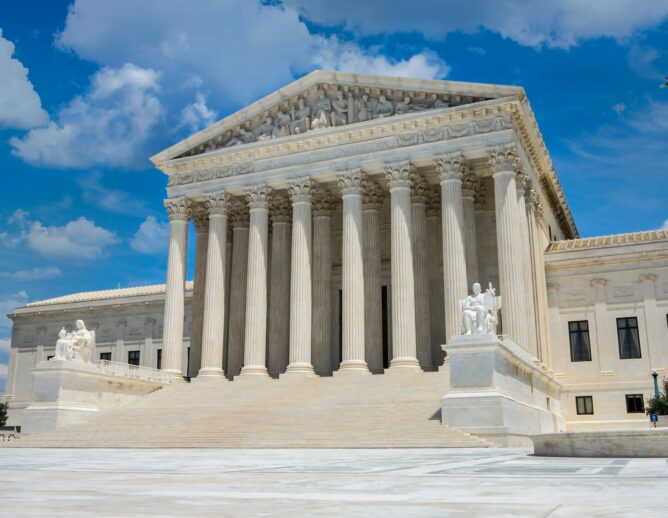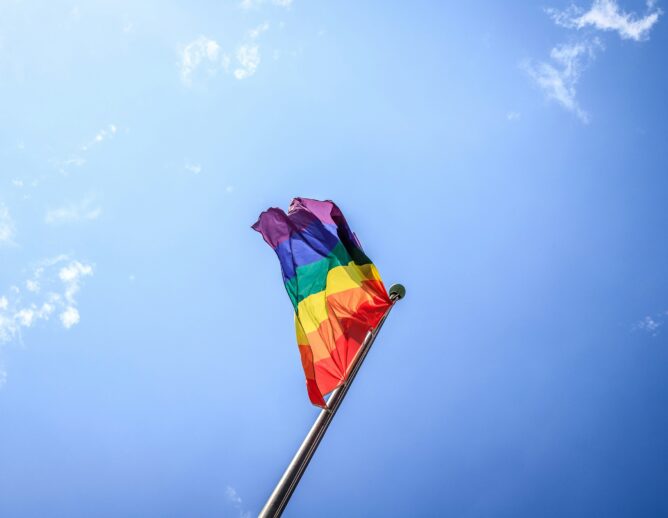
Don’t let the light go out. (Image courtesy of Hardy Services.)
As captured by Emma Lazarus, the torch of the Statute of Liberty lights the path for “the poor,” “the homeless, tempest-tossed,” welcoming them to this land, to the United States. Yet this administration’s basest instincts, so harsh towards those “yearning to breath free,” already seeking to block those who are fleeing persecution and remove who are seeking the American dream but lack proper documentation, has also turned its focus tp immigrants who are here with legal documentation and who seek to enter through lawful channels, yet happen to be in times of or are likely to experience economic hardship.
A proposed new rule that affects who may become lawful permanent residents (and thus, potentially, citizens) and otherwise receive certain visas, even though it has yet to be finalized or take effect, is already harming the health and well-being of some of the most vulnerable members of the American family. Time is running out – in particular, until December 10, 2018 – for you to go on the official public record opposing this change in policy.
At issue is a provision in the Immigration and Nationality Act (sec. 212(a)(4)) that makes people applying for admission into the United States inadmissible, and who are seeking to adjust their visa status unable to do so, if they are “likely to become a public charge.” That is, people who are seeking to immigrate to the United States or receive certain non-immigrant visas, or who are here and seeking a green card (to be a permanent resident), will be denied if they are so deemed. The proposal would also affect nonimmigrant visa-holders who seek to extend their stay.
The legislation does not define what constitutes a public charge. Presently, only two groups of people are included – those who receive cash assistance and those who are under long-term institutionalization at government expense. The administration has proposed vastly expanding the benefits considered. Under the proposed rule, “public charge” would be interpreted to also include most Medicaid benefits and a Medicare low-income subsidy, the Supplemental Nutritional Assistance Program, public housing, and Section 8 housing benefits. The Department of Homeland Security, which is proposing the rule, is also considering whether to include the Children’s Health Insurance Program (CHIP) among the benefits considered.
Participation in these programs is not automatic grounds for exclusion – decisions are made on a case-by-case basis based on the totality of the circumstances – but unlike at present, would weigh very heavily against immigrants, making them “generally ineligible.”
Congress has exempted several groups from the public charge provision, such as trafficking victims and refugees, something that would not change.
Another change (among still more) that would harm immigrants and would-be immigrants: their income will be directly considered, with low income weighing against them. In the past, income levels figured into the “public charge” consideration only indirectly. Some immigrants – those seeking certain family-based visas or employment-based visas (in particularly, where the immigrant works for a relative of their company) – must file an affidavit of support, where the sponsor was legislatively required to affirm that they could support the immigrant at an income level of at least 125% of the federal poverty line. Under the proposed change, an annual household income below this threshold would now directly count against the immigrant’s application (unless they had a specified level of assets, namely enough to cover five times the difference between their actual household income and the 125% threshold). That’s currently 7.5 million non-citizen residents who would have their income considered negatively.
Apart from its basic betrayal of the promise of America, the changes promise great harm to the health of immigrants. Immigrants will avoid and even disenroll from programs for which they are eligible because of the possible immigration consequences. And because of the fear and confusion, these effects could extend to even people to whom the changes do not apply, such as U.S. citizen children of immigrants and legal permanent residents. Likewise, they could affect immigrants’ use of programs that would remain exempt from consideration, like the Women, Infants, and Children program (WIC). Indeed, the proposal alone is already having a “chilling effect.”
By one estimate, 2.1-4.9 million people would disenroll from Medicaid or CHIP. That’s 15-35% of all beneficiaries of these programs who live in a household with a non-citizen. This would add to the extensive health harms that the administration’s policies are already causing immigrants.
Notably, when the Justice Department first defined the term “public charge” in 1999, it did so in large measure because many immigrants were not seeking public benefits because they feared the immigration consequences. This led state and federal agencies to themselves report that the confusion over what “public charge” encompassed was “creating significant, negative public health consequences across the country.” The situation was particularly “acute” regarding “the provision of emergency and other medical assistance, children’s immunizations, and basic nutrition programs, as well as the treatment of communicable diseases,” with the harms falling both on immigrants and their families and on the public overall, with the risk of increased spread of infectious diseases. Imagine what would happen if programs that provide many of these benefits really will have the feared immigration consequences.
Beyond the health harms through disenrollment or immigrants not signing up for benefits to which immigrants are legally entitled, another consequence of the proposed rule would be that quite possibly millions of immigrants would lose the opportunity to continue on the pathway towards U.S. citizenship, may not be allowed to legally remain in the United States, and may not be allowed to come in the first place. This is one of this administration’s broadest assaults on immigrants.
In October, the Department of Homeland Security issued the proposed new rule, with a 60-day window for public comment. It is a cruel irony that the last day for comment that will undermine people’s right to health and other rights is this Monday, December 10, Human Rights Day. I urge you to comment by that date. You can find the rule with the option to comment and the comment form itself.
While it may seem fruitless given the administration’s view of immigrants, public reaction can make a difference. A leaked version of an earlier proposed “public charge” rule was even more expansive, such as including receiving the Earned Income Tax Credit among the benefits considered, yet received a hash reception and was scaled back.
Every dollar saved directly if this proposed rule takes effect would come at the cost of the health of some of our country’s most vulnerable people. Every dollar saved directly comes at the cost of people who are and who would contribute to the vitality – and the economy – of these United States. And every dollar saved directly comes at the cost of the very meaning of America. The land of opportunity risks becoming decidedly less so.



